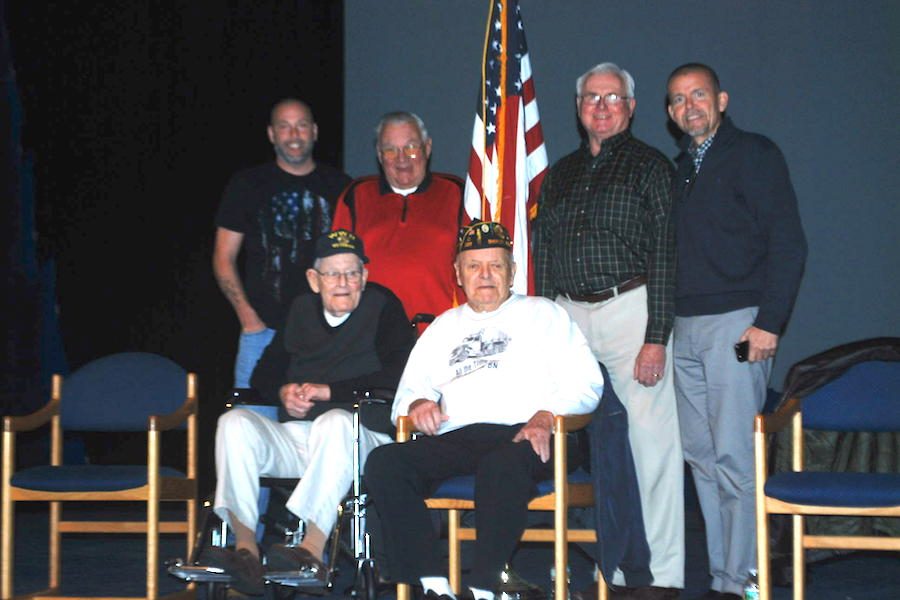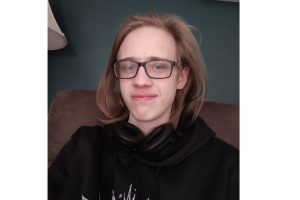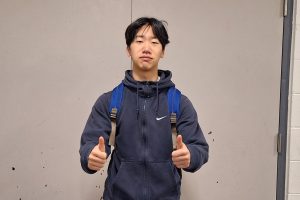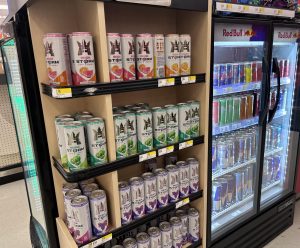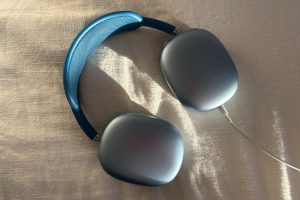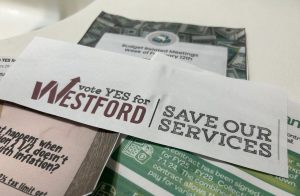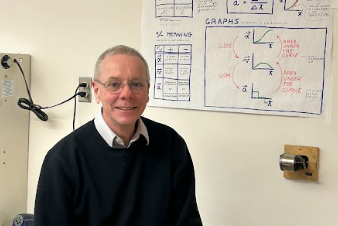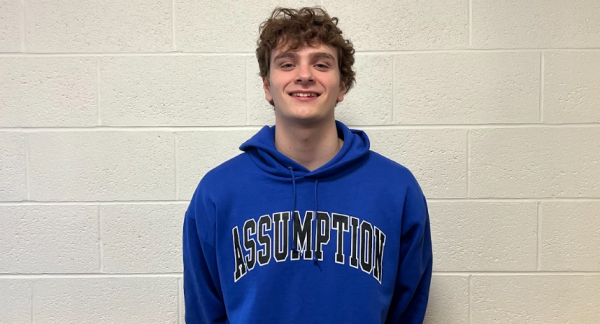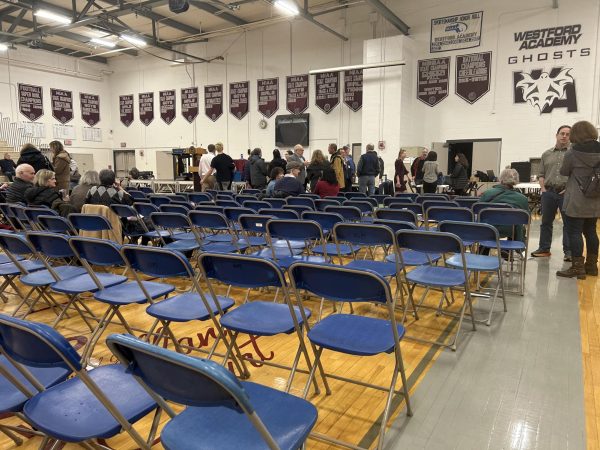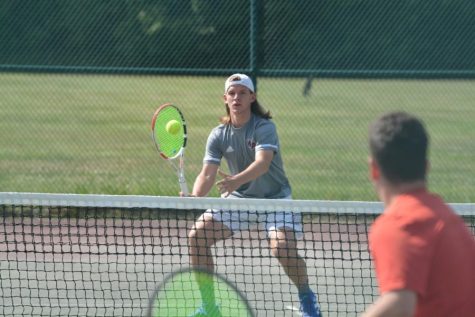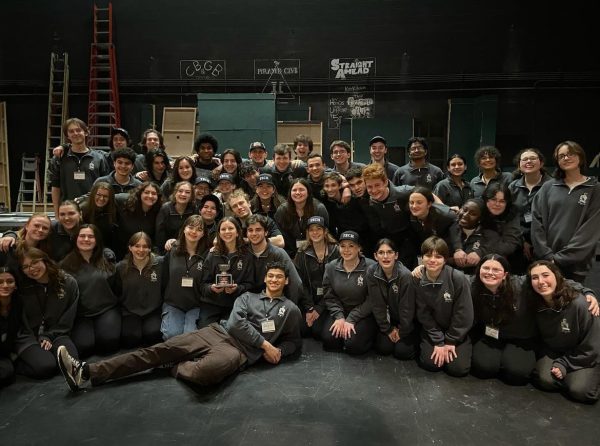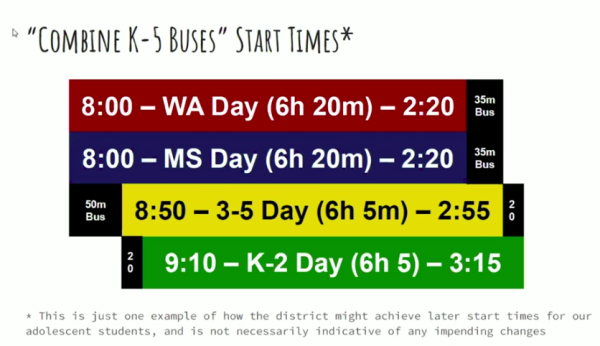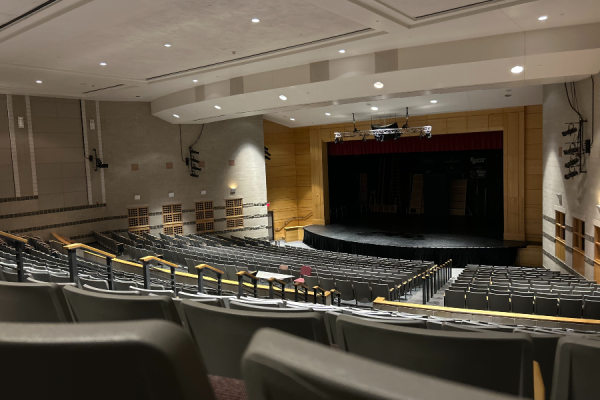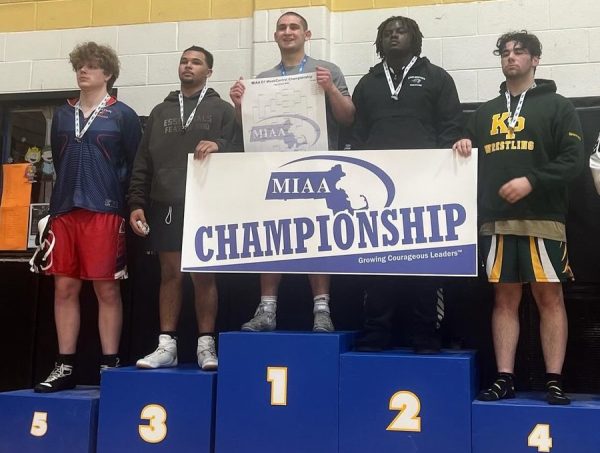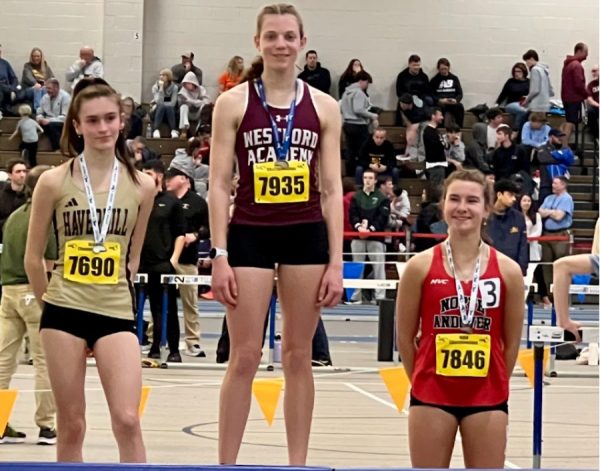WA welcomes local veterans in honor of Veteran’s Day
From left to right (above): Sergeant Thomas Sullivan, Yeoman 2nd Class Frank Harmon, Lieutenant Colonel David Sawyer, History Teacher Stephen Scully From left to right (below): Chief Warrant Officer Joseph McBreen, Corporal Joseph Landry
November 13, 2017
Every year at Westford Academy, history teacher Stephen Scully invites veterans of the United States Armed Forces to speak about their time in service and give advice to those interested in joining the military in honor of Veterans Day.
On November 14 during A and C block, students were invited to listen to anecdotes from five veterans.
The first speaker was Corporal Joseph Landry, a World War II veteran. Landry participated in six major campaigns in Europe during the war, and his platoon was largely used to transport supplies to other units.
He participated in the Normandy Landings by transporting supplies to the front lines before the ports were open. His platoon later marched through Europe to secure Luxembourg.
Landry gave advice to WA students interested in enlisting,
“If you’re gonna serve in the military or want to, serve in the Navy or Air Force because they have the best engineering schools. They have the best schools for trade experience. Look ahead to see what you want to do in the future,” he said.
The next speaker was Chief Warrant Officer Joseph McBreen, who is also a World War II veteran of the Army. He was drafted at 18 after graduating high school. McBreen eagerly awaited being drafted, as he dreamed of serving throughout his childhood.
McBreen was drafted to train as an engineer and later recruited for the engineer intelligence unit. McBreen was one of the youngest in his unit and worked with 30-year-old adults. He was sent to London, where he studied German equipment and “weathered the storm” as he helped deactivate mines in Germany.
McBreen is of a very patriotic generation that holds their country and freedom close to their heart.
“As a part of the greatest generation, we did our part,” McBreen said.
Yeoman 2nd Class Frank Harmon is a veteran of the Korean War. Harmon enlisted in the Navy in 1949 after studying accounting at Bentley University. After a month of training, Harmon and his crew transported materials from Okinawa, Japan, to Korea.
After getting caught in a typhoon near Korea and losing three seams in their ship, Harmon and the rest aboard spent three months getting their ship repaired. After their ship was repaired, Harmon helped evacuate Greece after a large earthquake.
After serving, Harmon was a member of the Ayer police force for seven years. After leaving law enforcement, he went to study chemical engineering at the University of Massachusetts.
Vietnam War veteran Lieutenant Colonel David Sawyer was also a member of the Army. Sawyer was a member of the Reserve Officers’ Training Corps (ROTC) and served in the Army to complete his compulsory service required by the ROTC.
Sawyer did not put as much emphasis on his time during the Vietnam War, instead, he spoke a lot of his life after Vietnam. Sawyer continued to actively work for the ROTC at places like Rice University, and retired from the ROTC in 1988 after 21 years.
Sawyer used his experience in the military in management positions at Raytheon, a US defense contracting company, where many veterans are employed.
The last speaker was Iraqi Freedom and Army veteran Sergeant Thomas Sullivan. Sullivan was another veteran who dreamed of serving the country as a child. Sullivan enlisted right after his graduation and spent the first three years of service on peacekeeping missions in Germany and Bosnia.
After returning to the US, Sullivan trained in upstate New York. After the September 11 attacks, he was deployed to Afganistan, where he helped train the Afgan National Army. After helping them train, he was staged in Kuwait, awaiting entrance into Iraq in early 2003.
After spending some a year in Iraq, he returned home as his enlistment expired. Less than a year later, he was asked to return to the war and set up law enforcement in Iraq. He now works for a US defense contractor.
Sullivan did not receive a college degree but was able to join due to experience.
“I’ve been pretty blessed in everything that’s come my way, I learned many leadership skills in the military,” Sullivan said on life after service.
Each speaker highlighted the importance of service and patriotism. Scully created a platform in which students were able to see the value in service. The five veterans who came to Westford Academy came from many roles in the military and helped destigmatize what the military is, and gave students an understanding of the opportunities that the military provides.
“For every combat job, there are 7 to 8 people supporting them,” Sawyer said.

